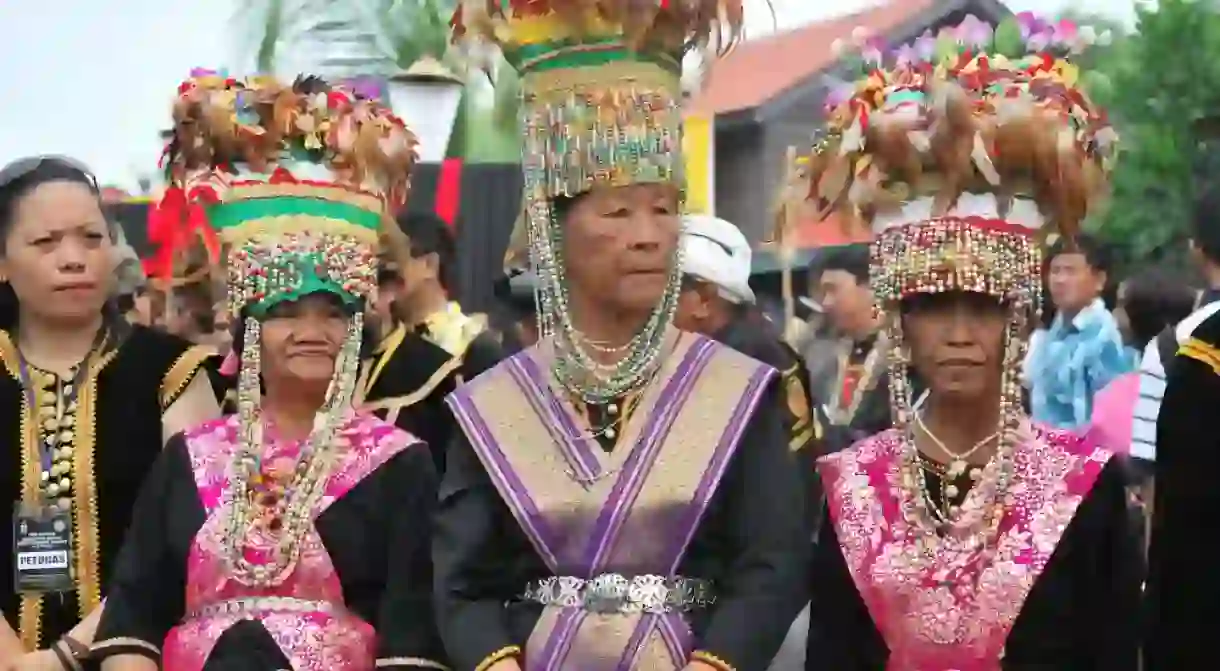The Sad Story of Sabah's Dying Paganism

For centuries, Borneo’s indigenous tribes believed the world was full of spirits. The pagans in Sabah had a relationship between the seen and unseen and had a life full of rituals, superstitions and traditions. But sadly, the ancient customs are becoming lost to time in 21st-century Sabah.
Ancient pagan traditions in Sabah
The pagans in Sabah were a superstitious bunch. Kadazan-Dusun traditions and customs ran deep in society. Locals held animistic beliefs and saw all natural objects as having their own spirit. Rituals of appeasement marked important events. An example is performing a ceremony at each stage of rice cultivation, from choosing the plot of land to harvesting. The purpose was to safeguard the Bambaazon, the rice spirit, to ensure a successful harvest. Kaamatan, Sabah’s Harvest Festival, is held annually on May 30 and May 31, to honour Bambaazon and to celebrate a successful harvest. Rice cultivation and their associated rituals were central to Kadazan-Dusun culture.
Superstitions and rituals
A typical practice by the grandparents and great-grandparents of modern-day Kadazan-Dusun relates to encountering a snake. If someone saw a snake at any time during their journey, they must return home and rest. According to local customs, should the person continue without returning home, they’ll receive bad luck. Others include throwing rice near the river bed so that the hungry spirits leave picnickers alone, abstaining from whistling after dark to prevent unwanted guests and the widespread use of animal charms. Sacrificing a chicken below a tree was a familiar ritual once practised by many too.
The Bobohizan
The Bobohizan, or ritual priestess, played a vital role in local pagan culture by acting as a window into the spirit world. Found across both Sabah and Sarawak, the spirit medium was known by many names and performed slightly different functions. But essentially, the Bobohizan communicates with and appeases the spirits through offerings and ritualist sacrifices. In Sabah, the medium is traditionally a woman. According to legend, a spirit returned to Earth to re-teach lost rituals and traditions, but the locals were too frightened to meet it, until one day a brave woman went into the darkness to see the spirit. The ‘ritual priestess’ was born. Women then learned long chants and prayers passed down orally from one generation to the next. Locals made sacrifices and donations to the Bobohizan after she performed a ritual.

Time slowly consumed paganism
Sabah’s former pagans began to embrace Christianity. In 1859, the British North Borneo Company, which ruled over today’s Sabah, first introduced Christian missionaries. Several decades later in the early 20th century, more villages converted from their pagan and animist ways to embrace the new religion. Rural communities who once worshipped the spirits and made offerings now attend church. In the modern world, the rituals, superstitions and Bobohizan are becoming a thing of the past. Sabah’s Harvest Festival and the deep cultural ties to Mount Kinabalu remain among the few reminders of the former pagans in Sabah.

The future of pagans in Sabah
Embracing a new religion isn’t the only reason paganism is dying out. As more rural communities start to make a life for themselves in the big city, ancient traditions and customs are slowly lost. The younger generations today would rather use a smartphone than learn the ancient rice rituals of their ancestors. As with much of the world, as the last generation of pagans age and succumb to time, so do their traditions.













